Pathbreakers of Arab America--Ninth in Series: Tom Shadyac
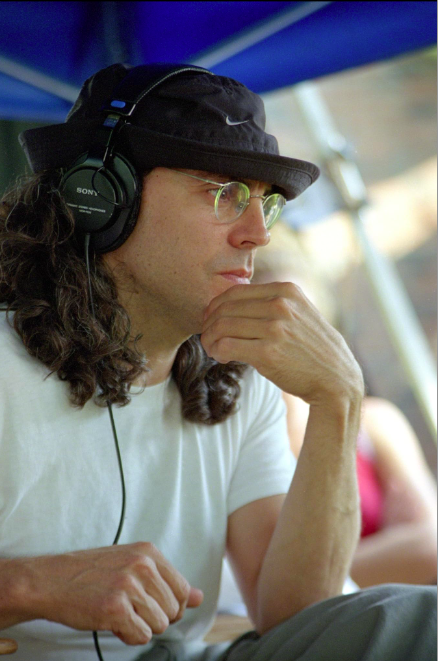
By: John Mason / Arab America Contributing Writer
This is the ninth in Arab America’s series on American pathbreakers of Arab descent. The series includes personalities from entertainment, business, sports, science, academia, and politics, among other areas. Arab America highlights our ninth pathbreaker, Tom Shadyac, Arab American, prestigious film director, producer, and sometimes actor, and proud son of Lebanese Christian parents. He has brought strains of Lebanese culture and religion into his life and his family is deeply involved in St. Jude Children’s Research Hospital in Memphis, Tennessee, and its fundraising arm, American Lebanese Syrian Associated Charities.
Thomas Peter Shadyac – Highly Successful Arab American Film Director, Screenwriter, Producer, and Author
Shadyac was born on December 11, 1958, in Falls Church, Virginia to Lebanese American parents, Julie and Richard Shadyac. His mother was of Lebanese descent, while his father was half-Irish and half-Lebanese. At first following his lawyer father as a pre-law student at the University of Virginia, though graduating as an English major, Shadyac then turned towards film. He earned a master’s in film from UCLA.
Shadyac moved to Los Angeles in 1983 and, at age 24, was Bob Hope’s staff joke writer. He briefly acted during the 1980s, appearing in an episode of Magnum, P.I. and in the 1987 film Jocks. He then worked on movies of the week, rewritten and directed for 20th Century Fox. Shadyac is well known for writing, directing, and producing some of the most successful comedies of the late 1990s and early 2000s. These included such comedy films as Ace Ventura: Pet Detective, The Nutty Professor, Liar Liar, Patch Adams, and Bruce Almighty.
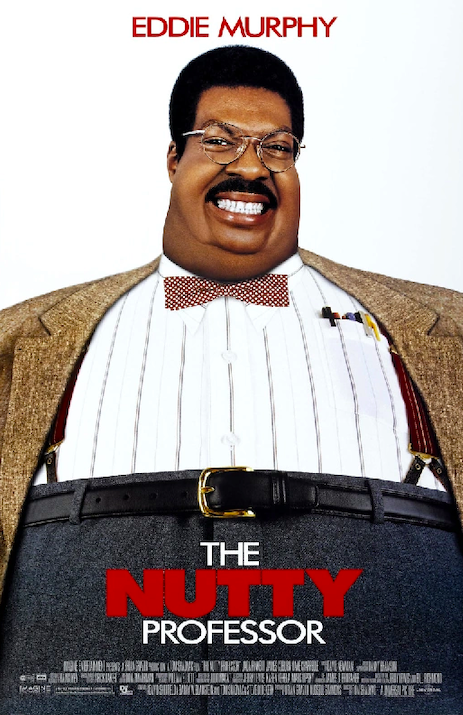
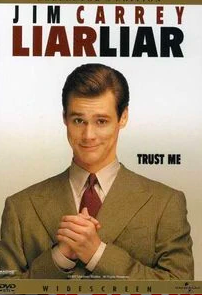
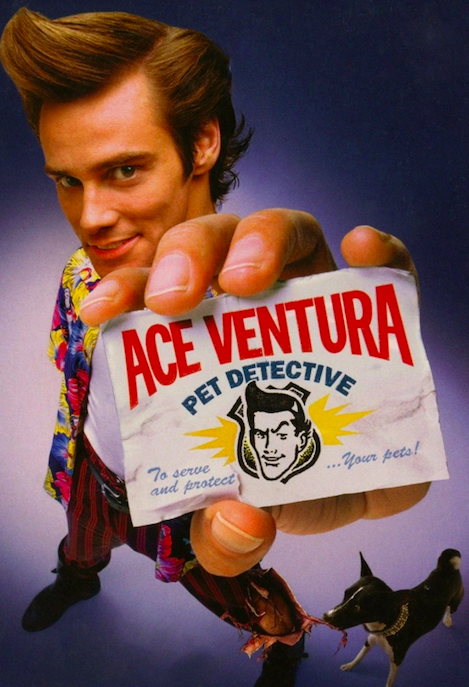
Shadyac’s work on Ace Ventura: Pet Detective (1994) helped turn comedic actor Jim Carrey into a box office star. His remake of The Nutty Professor (1996) with Eddie Murphy was highly successful, and he followed with Carrey again on the massively successful Liar, Liar (1997). While critics did not like these movies, they “scored with audiences who flocked to see the likes of Carrey and Murphy engage in no-holds-barred physical comedy.”
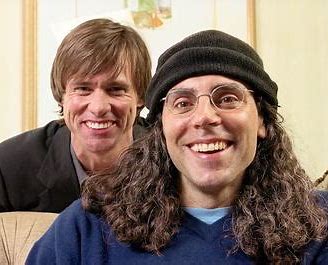
A life-threatening accident accentuates Shadyac’s move to a more simplified, philanthropic lifestyle
In 2007, Shadyac suffered post-concussion syndrome after a bicycle accident in Virginia. The accident resulted in a prolonged period of acute headaches and hypersensitivity to light and sound. The injury followed the cumulative effects of previous mild head injuries Shadyac had suffered from surfing, mountain biking, and playing basketball. According to Entertainment News, “he was forced to sleep in a darkened closet in his house due to a constant ringing in his ears that lasted beyond a six-month period, and his treating doctors were unable to determine if and when the ringing would cease. Shadyac later explained: ‘I felt suicidal at points. It was a disaster.’”
Severe side effects from the accident pushed him further into a simplified lifestyle. Even before the accident, Shadyac had begun to donate his excess fortune and had moved from a mansion to a trailer park, albeit an upscale one. He explored his personal journey and “mankind’s addiction to materialism” in the documentary I Am (2011). For that film, he interviewed scientists, religious leaders, environmentalists and philosophers, including David Suzuki, Desmond Tutu, Noam Chomsky, Lynne McTaggart, Elisabet Sahtouris, Howard Zinn and Thom Hartmann.

I Am asks two central questions: What’s Wrong with the World? and What Can We Do About it? The film is about “human connectedness, happiness, and the human spirit,” and explores Shadyac’s personal journey, “the nature of humanity” and the “world’s ever-growing addiction to materialism.” At its premiere screening, the film received a 23-minute standing ovation.
One of Shadyac’s philanthropic gestures, in 2018, was to open the doors to his newest project: Memphis Rox climbing gym. Located in South Memphis, it is a non-profit, pay-what-you-can climbing gym and community center. It also features weightlifting, treadmills, and other cardio, and classes in Yoga, Meditation, Tai Chi, and Senior Fitness. Memphis is the headquarters of St. Jude.
Shadyac says his concussion helped to cause his life crisis. But the crisis was largely about his perception that he personally had so much wealth and that so many others had so little. It was his sense of fairness that triggered his transformation. As he says, “I didn’t give up everything to be happy. In fact, I’m not even sure what happiness is. Happiness comes from the word “happenstance” which relates to things going on outside of you. What was happening to me was definitely on the inside. But after I gave up everything, I felt a lot more joy in my life. A lot more contentment. There’s nothing wrong, though, with making a lot of money … this is not a judgment on anyone at all. I was just taking in a lot more than I needed and this wasn’t good for me.”
Shadyac’s generosity is not an isolated, personal trait. Philanthropy runs in the family. His father, Richard C. Shadyac Sr., a Washington, D.C. attorney, was a longtime friend of comedian, actor, and TV producer Danny Thomas. Thomas’s charity and lifelong efforts were aimed at the founding and development of St. Jude Children’s Research Hospital in Memphis, Tennessee. Shadyac Sr. served as the CEO of St. Jude’s fundraising arm, American Lebanese Syrian Associated Charities (ALSAC), from 1992 to 2005, and died in September 2009 in McLean, Virginia. Tom’s brother is also involved in the St. Jude philanthropy.
We leave Tom Shadyac with a few of his favorite quotes:
“The word contentment comes from the word content, which is what we hold inside – love, value, a feeling of a life that has meaning or purpose, a cause greater than yourself that you’re a part of. These are the things that bring true happiness. As a culture, I think we need to redefine what it means to be happy.”
“Look at native cultures – they’ve lasted for tens of thousands of years, not doing everything right. We wouldn’t want to emulate them in many ways, but their basic philosophies – being a part of nature, a part of a tribe or group without elevating, not what you call dominator philosophies – lasted for tens of thousands of years.”
In that last quote, we might be able to imagine Lebanese society, though during a bygone era.
Sources:
–“List of Arab Americans—Tom Shadyac,” Wikipedia, 2023
–“What ever happened to Tom Shadyac?”, Entertainment, 2/11/2011
–“Tom Shadyac,” Ethnicelebs.com, 9/13/2017
–“Lebanese American Film Director Tom Shadyac Reflects on Arab Culture,” Interview on Vimeo, Arab America, 10/26/2016
John Mason, PhD., who focuses on Arab culture, society, and history, is the author of LEFT-HANDED IN AN ISLAMIC WORLD: An Anthropologist’s Journey into the Middle East, New Academia Publishing, 2017. He has taught at the University of Libya, Benghazi, Rennselaer Polytechnic Institute in New York, and the American University in Cairo; John served with the United Nations in Tripoli, Libya, and consulted extensively on socioeconomic and political development for USAID and the World Bank in 65 countries.
Check out our Blog here!









